- Home
- Dan Simmons
Children of the Night Page 2
Children of the Night Read online
Page 2
Chapter Three
WE flew to Timişoara, a city of about 300,000 in western Transylvania, suffering the flight in an old recycled Tupolev turboprop now belonging to Tarom, the state airline. The authorities would not allow my Lear to fly from city to city in the country. We were lucky; the daily flight was delayed only an hour and a half. We flew through cloud for most of the way, and there were no interior lights on the plane, but that did not matter because there were neither flight attendants nor the interruption of a meal or snack. Dr. Paxley grumbled most of the way, but the scream of the turboprops and the groaning of metal as we bounced and bucked our way through updrafts and storm clouds muffled most of his complaints.
Just as we took off, seconds before entering the clouds, Fortuna leaned across the aisle and pointed out the window to a snow-covered island on a lake that must have been about twenty miles north of Bucharest, “Şnagov,” he said, watching my face.
I glanced down, caught a glimpse of a dark church on the island before the clouds obliterated the view, and looked back at Fortuna. “Yes?”
“Vlad Ţepeş buried there,” said Fortuna, still watching me. He pronounced the last name as “Tsepesh.”
I nodded. Fortuna went back to reading one of our Time magazines in the dim light, although how someone could read or concentrate during that wild ride, I will never know. A minute later Carl Berry leaned forward from the seat behind me and whispered, “Who the hell is Vlad Ţepeş? Someone who died in the fighting?”
The cabin was so dark now that I could barely make out Berry’s face inches from my own. “Dracula,” I said to the AT&T executive.
Berry let out a discouraged sigh and leaned back in his seat, tightening his belt as we began to pitch and bounce in earnest.
“Vlad the Impaler,” I whispered to no one at all.
The electricity had failed, so the morgue was cooled by the simple expediency of opening all of the tall windows. The light was still very thin, as if watered down by the dark green walls and grimy panes of glass and constant low clouds, but was adequate to illuminate the rows of corpses across the tabletops and filling almost every inch of the tiled floors. We had to walk a circuitous path, stepping carefully between bare legs and white faces and bulging bellies, just to join Fortuna and the Romanian doctor in the center of the room. There were at least three or four hundred bodies in the long room…not counting ourselves.
“Why haven’t these people been buried?” demanded Father O’Rourke, his scarf raised to his face. His voice was angry. “It’s been at least a week since the murders, correct?”
Fortuna translated for the Timişoaran doctor, who shrugged. Fortuna shrugged. “Eleven days since the Securitate, they do this,” he said. “Funerals soon. The…how do you say…the authorities here, they want to show the Western reporters and such very important peoples as yourselfs. Look, look.” Fortuna opened his arms to the room in a gesture that was almost proud, a chef showing off the banquet he had prepared.
On the table in front of us lay a corpse of an old man. His hands and feet had been amputated by something not very sharp. There were burns on his lower abdomen and genitals, and his chest showed open scars that reminded me of Viking photos of the rivers and craters of Mars.
The Romanian doctor spoke. Fortuna translated. “He say, the Securitate, they play with acid. You know? And here…”
The young woman lay on the floor, fully clothed except for the ripped clothing that extended from her breasts to pubic bone. What I first took for another layer of slashed, red rags, I now realized was the red-rimmed wall of her opened belly and abdomen. The seven-month fetus lay on her lap like a discarded doll. It would have been a boy.
“Here,” commanded Fortuna, stepping through the maze of ankles and gesturing.
The boy must have been about ten. Death and a week or more of freezing cold had expanded and mottled flesh to the texture of bloated, marbled parchment, but the barbed wire around his ankles and wrists was still quite visible. His arms had been tied behind him with such force that the shoulder joints were totally out of their sockets. Flies had been at his eyes, and the layer of eggs there made it look as if the child were wearing white goggles.
Professor Emeritus Paxley made a noise and staggered from the room, almost tripping over the bodies set out for display there. One old man’s gnarled hand seemed to tug at the professor’s pant leg as he fled.
Father O’Rourke grabbed Fortuna by his coat front and almost lifted the little man from the floor. “Why in the hell are you showing us this?”
Fortuna grinned. “There is more, Father. Come.”
“They called Ceauşescu ‘the vampire,’” said Donna Wexler, who had flown up later to join us.
“And here in Timişoara is where it started,” said Carl Berry, puffing on his pipe and looking around at the gray sky, gray buildings, gray slush on the street, and gray people moving through the dim light.
“Here in Timişoara is where the final explosion began,” said Wexler. “The younger generation has been getting more and more restless for some time. In a real sense, Ceauşescu signed his own death warrant by creating that generation.”
“Creating that generation,” repeated Father O’Rourke, frowning. “Explain.”
Wexler explained. In the mid-1960s Ceauşescu had outlawed abortion, discontinued the import of oral contraceptives and IUDs, and announced that it was a woman’s obligation to the state to have many children. More importantly, his government had offered birth premiums and reduced taxes to those families who obeyed the government’s call for increased births. Couples who had fewer than five children were actually fined as well as heavily taxed. Between 1966 and 1976, said Wexler, there had been a forty percent increase in babies born, along with a huge rise in infant mortality.
“It was this surplus of young people in their twenties by the late 1980s who provided the core of the revolution,” said Donna Wexler. “They had no jobs, no chance for a college education…not even a chance for decent housing. They were the ones who began the protests in Timişoara and elsewhere.”
Father O’Rourke nodded. “Ironic…but appropriate.”
“Of course,” said Wexler, pausing near the train station, “most of the peasant families could not afford to raise the extra children…” She stopped with that diplomat’s tic of embarrassment.
“So what happened to those children?” I asked. It was only early afternoon, but the light had faded to a wintry twilight. There were no streetlights along this section of Timişoara’s main boulevard. Somewhere far down the tracks, a locomotive screamed.
The embassy woman shook her head, but Radu Fortuna stepped closer. “We take train tonight to Sebeş, Sibiu, Copşa Mica, and Sighişoara,” the smiling Romanian said. “You see where babies go.”
Winter evening became winter night beyond the windows of our train. The train passed through mountains as jagged as rotten teeth—whether they were the Făgăraş Range or the lower Bucegi Carpathians, I could not remember right then—and the dismal sight of huddled villages and sagging farms faded to blackness broken only by the occasional glow of oil lamps through distant windows. For a second the illusion was perfect and I thought I was traveling through these mountains in the fifteenth century, traveling by coach to the castle on the Argeş, hurrying through these mountain passes in a race against enemies who would…
I realized with a start that I had almost dozed off. It was New Year’s Eve, the last night of 1989, and the dawn would bring what was popularly thought of as the last decade of the millennium. But the sight out the window remained a glimpse of the fifteenth century. The only intrusion of the modern age visible in the evening departure from Timişoara had been the occasional military vehicle glimpsed on snow-packed roads and the rare electric cables snaking above the trees. Then those slim talismans had disappeared and there were only the villages, the oil lamps, the cold, and an occasional rubber-wheeled cart, pulled by horses who seemed more bone than flesh, guided by men hidden in dark
wool. Then even the village streets were empty as the train rushed through, stopping nowhere. I realized that some of the villages were totally dark, even though it was not yet ten P.M., and leaning closer, wiping frost from the glass, I saw that the village we were passing now was dead—buildings bulldozed, stone walls demolished, farm homes tumbled down.
“Systematization,” whispered Radu Fortuna, who had appeared silently next to me in the aisle. He was chewing on an onion.
I did not ask for clarification, but our guide and liaison smiled and provided it. “Ceauşescu wanted to destroy the old. He break down villages, move thousands of peoples to city places like Victory of Socialism Boulevard in Bucharest…kilometers and kilometers of tall apartment buildings. Only buildings, they not finished when he tear down and move peoples there. No heat. No water. No electricity…he sell electricity to other countries, you see. So village peoples, they have little house out here, be in family three, maybe four hundreds of years, but now live on ninth floor of bad brick building in strange city…no windows, cold wind blow in. Have to carry water a mile, then carry up nine flights of stairs.”
He took a deep bite of the onion and nodded as if satisfied. “Systematization.” He moved on down the smoky aisle.
The mountains passed in the night. I began to doze again… I had slept little the night before, dreamlessly or otherwise, and I had not slept on the plane the night before that…but awoke with a start to find that the Professor Emeritus had taken the seat next to me.
“No goddamn heat,” he whispered, tugging his muffler tighter. “You’d think with all these goddamn peasant bodies and goats and chickens and what have you in this so-called first-class car, that they’d generate some body heat in here, but it’s as cold as Madame Ceauşescu’s dear dead tit.”
I blinked at the simile.
“Actually,” said Dr. Paxley in a conspiratorial whisper, “it’s not as bad as they say.”
“The cold?” I said.
“No, no. The economy. Ceauşescu may be the only national leader in this century who actually paid off his country’s foreign debt. Of course, he had to divert food, electricity, and consumer goods to other countries to do it, but Romania has no foreign debt at all now. None.”
“Mmmm,” I said, trying to remember the fragments of the dream I’d had in my few moments of sleep. Something about blood and iron.
“A one-point-seven-billion-dollar trade surplus,” muttered Paxley, leaning close enough that I could tell that he’d also had onion for dinner. “And they owe the West nothing and the Russians nothing. Incredible.”
“But the people are starving,” I said softly. Wexler and Father O’Rourke were asleep in the seat in front of us. The bearded priest mumbled slightly, as if battling a bad dream.
Paxley waved away my comment. “When German reunification comes, do you know how much the West Germans are going to have to invest just to retool the infrastructure in the East?” Not waiting for my reply, he went on. “A hundred billion Deutschmarks…and that’s just to prime the pump. With Romania, the infrastructure is so pitiful that there’s little to tear down. Just junk the industrial madness that Ceauşescu was so proud of, use the cheap labor…my God, man, they’re almost serfs…and build whatever industrial infrastructure you want. The South Korean model, Mexico…it’s wide open for the Western corporation that’s willing to take the chance.”
I pretended to doze off again, and eventually the Professor Emeritus moved down the aisle to find someone else to explain the economic facts of life to. The villages passed in the darkness as we moved deeper into the Transylvanian mountains.
We arrived in Sebeş before dawn and there was some minor official there to take us to the orphanage.
No, orphanage is too kind a word. It was a warehouse, heated no better than the other meat lockers we had been in so far, undecorated except for grimy tile floors and flaking walls painted a vomitous green to eye height and a leprous gray above that. The main hall was at least a hundred meters across.
It was filled with cribs.
Again, the word is too generous. Not cribs, but low metal cages with no tops to them. In the cages were children. Children ranging in age from newborns to ten-year-olds. None seemed capable of walking. All were naked or dressed in filth-caked rags. Many were screaming or weeping silently, and the fog of their breath rose in the cold air. Stern-faced women in complicated nurse’s caps stood smoking cigarettes on the periphery of this giant human stockyard, occasionally moving among the cages to brusquely hand a bottle to a child…sometimes a seven- or eight-year-old child…or more frequently to slap one into silence.
The official and the chain-smoking administrator of the “orphanage” snapped a tirade at us which Fortuna did not deign to translate, and then they walked us through the room and slammed open tall doors.
Another room, a larger room, opened into the cold-shrouded distance. Thin morning light fell in shafts onto the cages and faces there. There must have been at least a thousand children in this room, none of them more than two years old. Some were crying, their infant wails echoing in the tiled space, but most seemed too weak and lethargic even to cry as they lay on the thin, excrement-smeared rags. Some lay in the foetal grip of near starvation. Some looked dead.
Radu Fortuna turned and folded his arms. He was smiling. “You see where the babies go, yes?”
Chapter Four
IN Sibiu we found the hidden children. There were four orphanages in this central Transylvanian city of 170,000, and each orphanage was larger and sadder than the one in Sebeş. Dr. Aimslea demanded, through Fortuna, that we be allowed to see the AIDS children.
The administrator of Strada Cetatii State Orphanage 319, a windowless old structure in the shadow of the sixteenth-century city walls, absolutely refused to acknowledge that there were any AIDS babies. He refused to acknowledge our right to enter the orphanage. He refused, at one point, to acknowledge that he was the administrator of Strada Cetatii State Orphanage 319, despite the stenciling on his office door and the plaque on his desk.
Fortuna showed him our travel papers and authorization forms, co-signed with a personal plea for cooperation from interim Prime Minister Roman, President Iliescu, and Vice President Mazilu.
The administrator sneered, took a drag on his short cigarette, shook his head, and said something dismissive. “My orders come from the Ministry of Health,” Radu Fortuna translated.
It took almost an hour to get through to the capital, but Fortuna finally completed a call to the Prime Minister’s office, who called the Ministry of Health, who promised to call Strada Cetatii State Orphanage 319 immediately. A little over two hours later, the call came, the administrator snarled something at Fortuna, tossed his cigarette butt on dirty tiles littered with them, snapped something at an orderly, and handed a huge ring of keys to Fortuna.
The AIDS ward was behind four sets of locked doors. There were no nurses there, no doctors…no adults of any kind. Neither were there cribs; the infants and small children sat on the tile floor or competed to find space on one of half a dozen bare and excrement-stained mattresses thrown against the far wall. They were naked and their heads had been shaved. The windowless room was illuminated by a few naked 40-watt bulbs set thirty or forty feet apart. Some children congregated there in the pools of murky light, raising swollen eyes to them as if to the sun, but most lay in the deep shadows. Older children scuttled on all fours to escape the light as we opened the steel doors.
It was obvious that the floors were hosed down every few days—there were rivulets and streaks along the cracked tiles—and it was just as obvious that no other hygienic efforts had been made. Donna Wexler, Dr. Paxley, and Mr. Berry turned and fled from the stench. Dr. Aimslea cursed and pounded his fist against a stone wall. Father O’Rourke first stared, his Irish face mottling with rage, and then moved from infant to infant, touching their heads, whispering softly to them in a language they did not understand, lifting them. I had the distinct impression as I watched that
most of these children had never been held, perhaps never been touched.
Radu Fortuna followed us into the room. He was not smiling. “Comrade Ceauşescu told us that AIDS is a capitalist disease,” he whispered. “Romania has no official cases of AIDS. None.”
“My God, my God,” Dr. Aimslea was muttering as he moved from child to child. “Most of these are in advanced stages of AIDS-related complexes. And suffering from malnutrition and vitamin deficiencies.” He looked up and there were tears gleaming behind his glasses. “How long have they been here?”
Fortuna shrugged. “Most maybe since little babies. Parents put here. Babies not go out of this room, that why so few know to walk. No one to hold them up when they try.”
Dr. Aimslea unleashed a series of curses that seemed to smoke in the chill air. Fortuna nodded.
“But hasn’t anyone documented these…this…tragedy?” said Dr. Aimslea in a constricted voice.
Now Fortuna smiled. “Oh, yes, yes. Doctor Patrascu from Stefan S. Nicolau Institute of Virology, he say this happening three…maybe four years ago. First child he test, was infected. I think six out of next fourteen also sick from AIDS. All cities, all state homes he went to, many, many sick childrens.”
Dr. Aimslea rose from shining his penlight in a comatose infant’s eyes. Aimslea grabbed Fortuna by the coat, and for a second I was sure that he was going to strike the little guide in the face. “For Christ’s sake, man, didn’t he tell anyone?”
Fortuna stared impassively at the doctor. “Oh, yes. Doctor Patrascu, he tell Ministry of Health. They say for him to stop immediately. They cancel AIDS seminar Doctor schedule…then they burn his minutes and…how do you say it? Like little guides for meeting…programs. They confiscate printed programs and burn them.”
Father O’Rourke set down a child. The two-year-old’s thin arms strained toward the priest as she made vague, imploring noises—a plea to be lifted again. He lifted her, laying her bald and scabrous head tight against his cheek. “Goddamn them,” whispered the priest in a tone of benediction. “Goddamn the Ministry. Goddamn that sonofabitch downstairs. Goddamn Ceauşescu forever. May they all burn in Hell.”

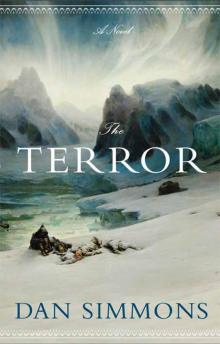 The Terror
The Terror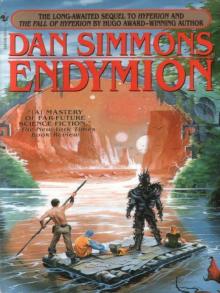 Endymion
Endymion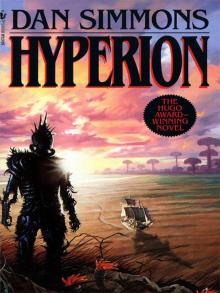 Hyperion
Hyperion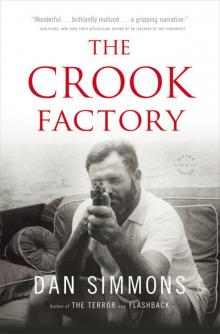 The Crook Factory
The Crook Factory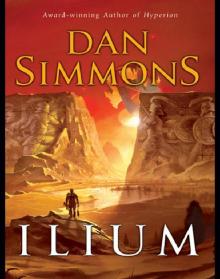 Ilium
Ilium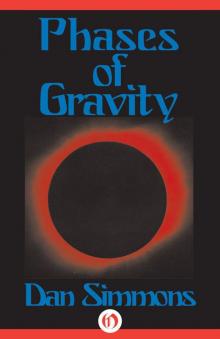 Phases of Gravity
Phases of Gravity Hardcase
Hardcase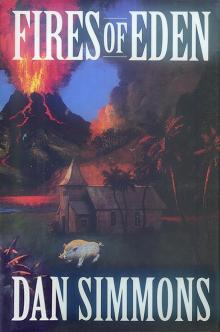 Fires of Eden
Fires of Eden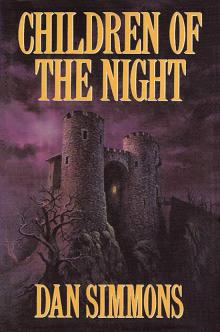 Children of the Night
Children of the Night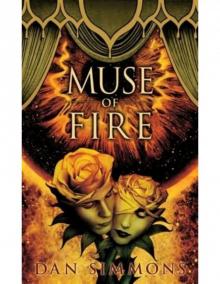 Muse of Fire
Muse of Fire Drood
Drood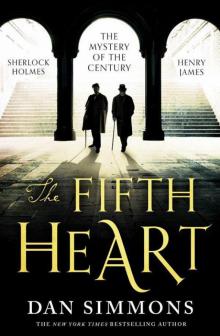 The Fifth Heart
The Fifth Heart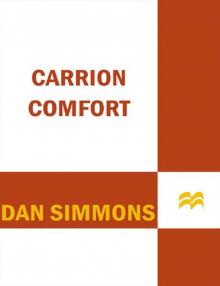 Carrion Comfort
Carrion Comfort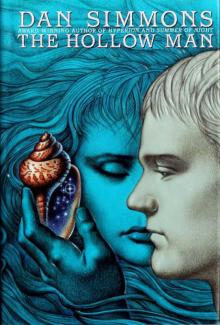 The Hollow Man
The Hollow Man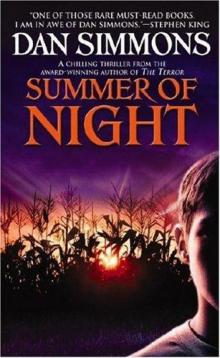 Summer of Night
Summer of Night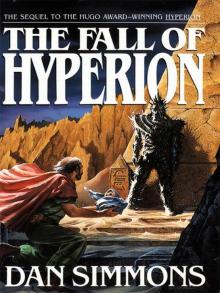 The Fall of Hyperion
The Fall of Hyperion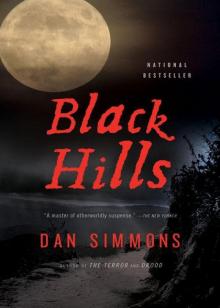 Black Hills
Black Hills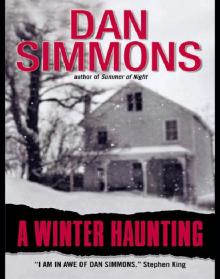 A Winter Haunting
A Winter Haunting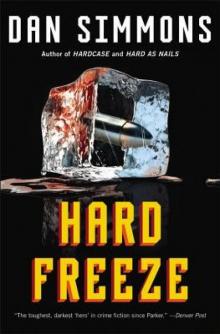 Hard Freeze
Hard Freeze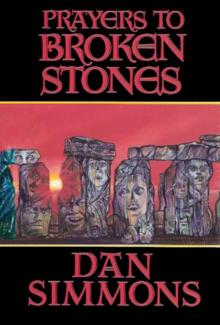 Prayers to Broken Stones
Prayers to Broken Stones Hard as Nails
Hard as Nails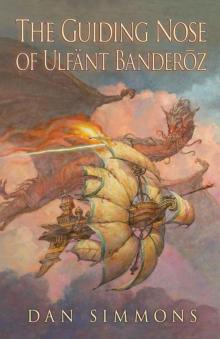 The Guiding Nose of Ulfant Banderoz
The Guiding Nose of Ulfant Banderoz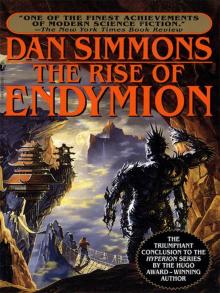 The Rise of Endymion
The Rise of Endymion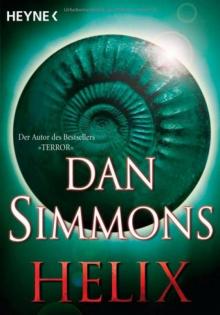 Orphans of the Helix
Orphans of the Helix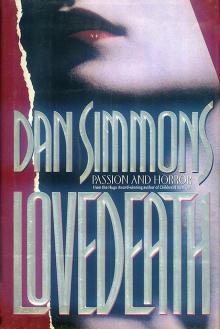 Lovedeath
Lovedeath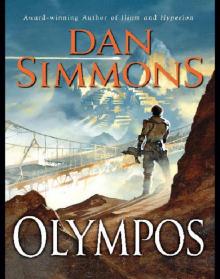 Olympos
Olympos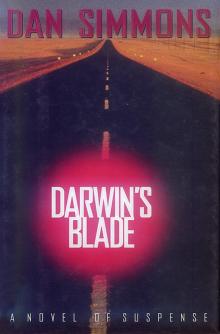 Darwin's Blade
Darwin's Blade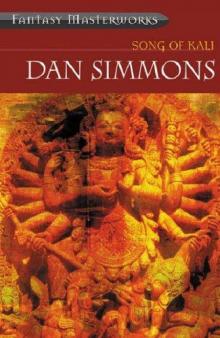 Song of Kali
Song of Kali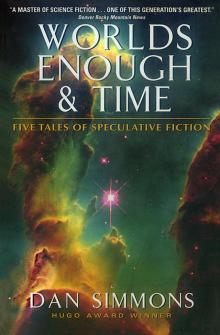 Worlds Enough & Time: Five Tales of Speculative Fiction
Worlds Enough & Time: Five Tales of Speculative Fiction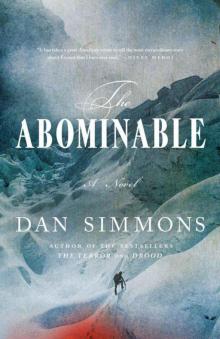 The Abominable
The Abominable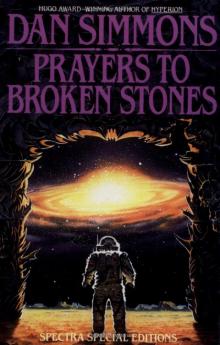 The Death of the Centaur
The Death of the Centaur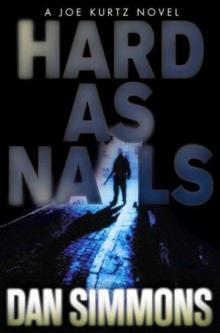 Hard as Nails jk-3
Hard as Nails jk-3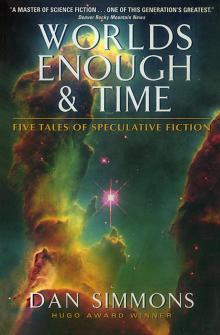 Worlds Enough & Time
Worlds Enough & Time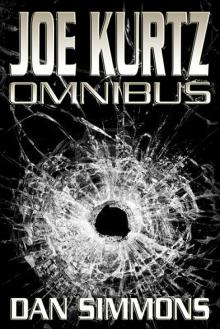 Joe Kurtz Omnibus
Joe Kurtz Omnibus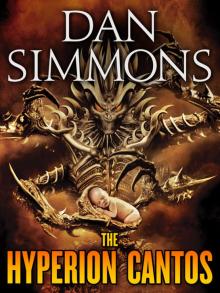 The Hyperion Cantos 4-Book Bundle
The Hyperion Cantos 4-Book Bundle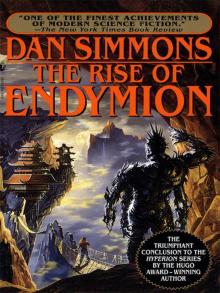 Rise of Endymion
Rise of Endymion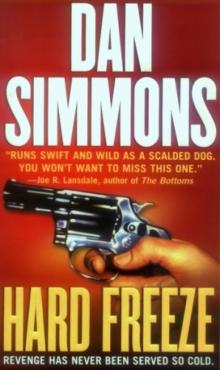 Hard Freeze jk-2
Hard Freeze jk-2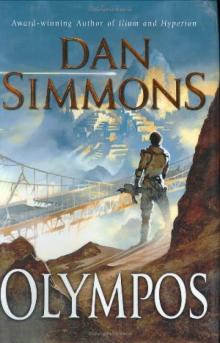 Olympos t-2
Olympos t-2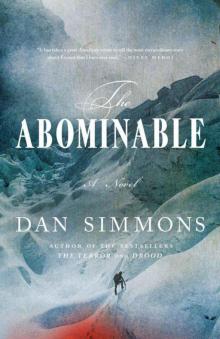 The Abominable: A Novel
The Abominable: A Novel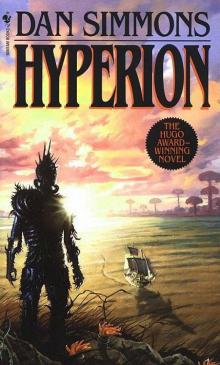 Hyperion h-1
Hyperion h-1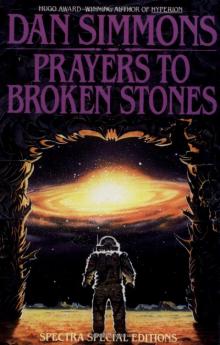 Remembering Siri
Remembering Siri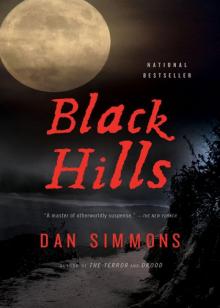 Black Hills: A Novel
Black Hills: A Novel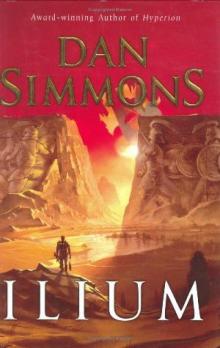 Ilium t-1
Ilium t-1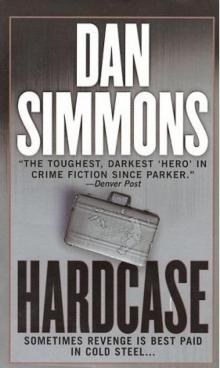 Hardcase jk-1
Hardcase jk-1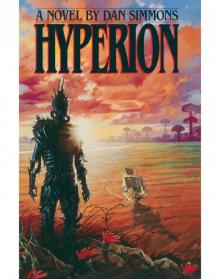 Hyperion 01 - Hyperion
Hyperion 01 - Hyperion